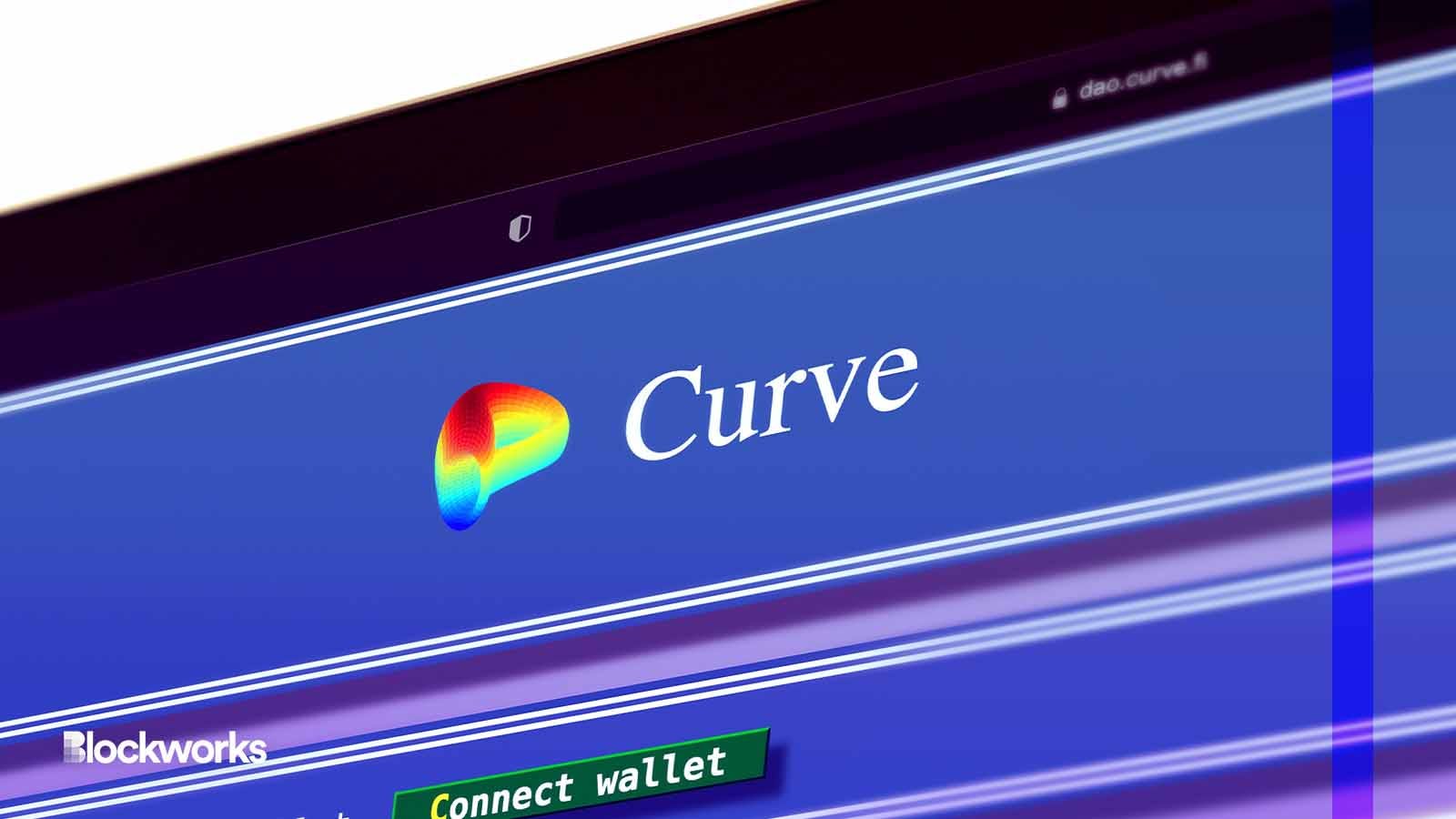CRV down 20% on the week as traders scrutinize OTC deals
A series of “handshake” deals to bail out a now-infamous lending position are now in the hot seat following a price rout

AndriiKoval/Shutterstock modified by Blockworks
After a week that saw the price of Curve’s CRV token fall 20%, a series of over-the-counter deals originally made to bail out Curve founder Michael Egorov’s lending positions now face scrutiny.
On July 31, Curve suffered a $70 million exploit that sent the price of CRV tumbling from $0.73 to as low as $0.50.
While the majority of the funds were later recovered or seized by whitehat hackers, one pool in particular — CRV/ETH — remained drained. This pool was an important source of on-chain liquidity for CRV, and without it, lending markets that might need to liquidate CRV collateral on delinquent positions ran the risk of incurring bad debt.
This was not a theoretical risk. At the time of the attack, Egorov held upwards of $110 million in stablecoin loans from various lending platforms, largely using CRV collateral. As the price fell, many of those positions appeared to be at risk of liquidation.
To save his loans — and potentially prevent cascading liquidations across the DeFi space — Egorov entered into a series of over-the-counter (OTC) deals with over a dozen counterparties, selling large tranches of CRV for stablecoins to pay down his debts.
Read more: Curve’s Egorov turns to notable counterparties to bail out his DeFi positions
While the terms of the deal were not formally disclosed, multiple individuals who claimed to have been approached wrote publicly that the tokens were sold for $0.40 per CRV (well below market rate at the time) with a six-month lockup. However, the lockups did not appear to be enforced legally or via smart contract.
In a statement to Blockworks, Egorov confirmed that there are no negative effects for buyers who break the handshake agreement, but that he “thinks they would” keep their word regarding the six-month lockups.
Observers have already noted that some of the parties have transferred their tokens to centralized exchanges — often a sign that they intend to sell.
Andrei Grachev, head of DFW Labs, one of the entities that has transferred their OTC’d tokens to an exchange, denied these accusations on Twitter, claiming that the move was for “trading needs” and not to sell.
As Egorov pointed out to Blockworks, other users have indirectly committed to the six-month lockup by vote-escrowing their CRV. Locking tokens in the vote escrow contracts issues veCRV, which allows users to dictate the flow of further CRV rewards to specific liquidity pools.
Despite the price dip, Egorov’s current positions look healthy. On Aave, he has a $14.8 million loan secured by $55.8 million in CRV collateral, and across a number of protocols an additional $27 million in debt secured by $68 million in collateral.
CRV is currently trading around $0.45, down 6% on the day.
Get the news in your inbox. Explore Blockworks newsletters:
- The Breakdown: Decoding crypto and the markets. Daily.
- 0xResearch: Alpha in your inbox. Think like an analyst.






